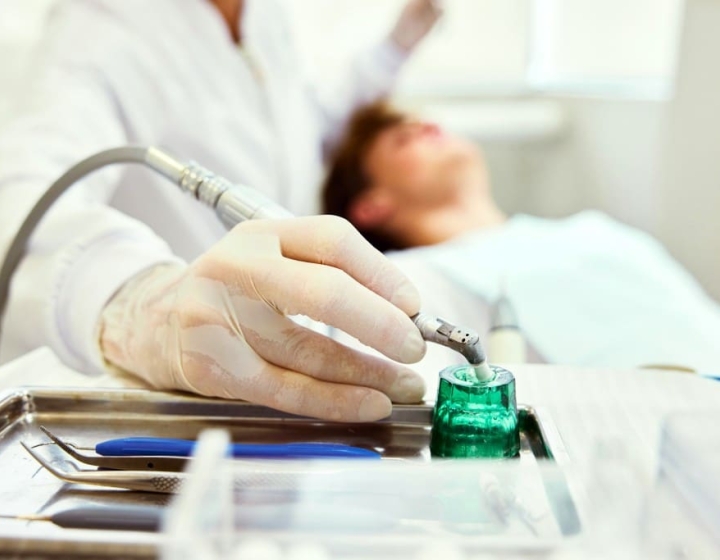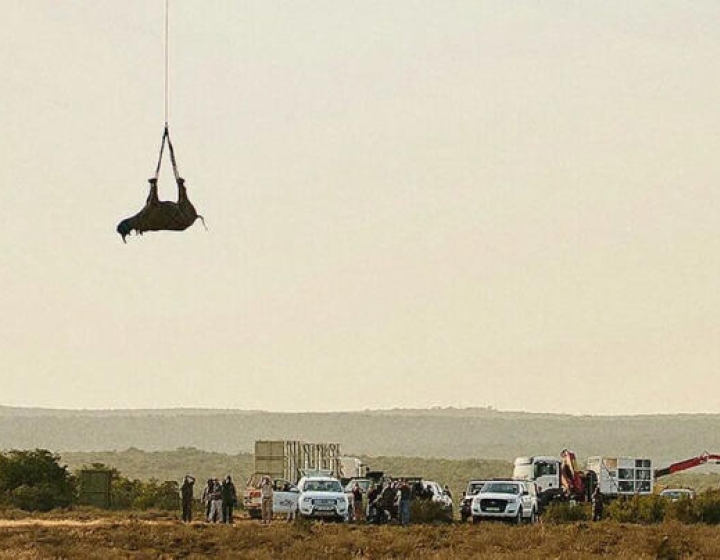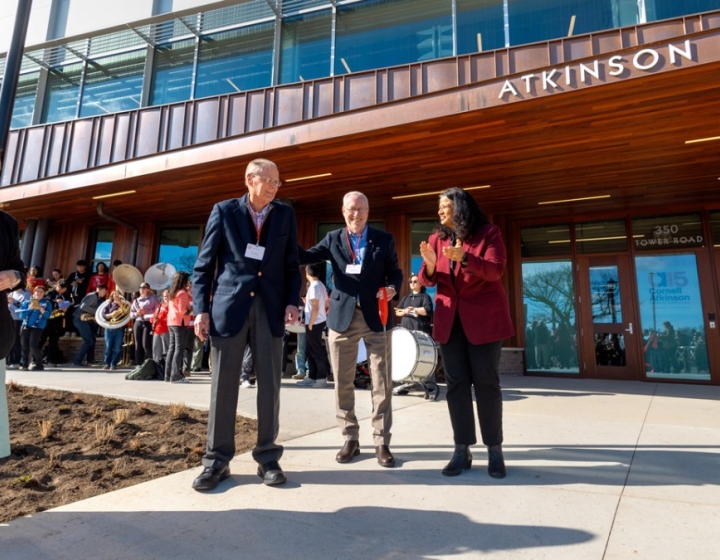Robots, know-how drive COVID lab’s massive testing effort
The samples will arrive via courier every 30 minutes.
Once they’re logged in at the Cornell COVID-19 Testing Laboratory (CCTL), based in the College of Veterinary Medicine, a robot will pipette the liquid samples into pools of five. The pools will then be processed in batches of 93 at a time – ultimately yielding test results within 24 hours for 5,000 to 7,000 Cornell students, staff and faculty per day.
It’s a massive undertaking in a state-of-the-art lab built from scratch in less than two months, based on data-driven models, research and interdisciplinary expertise across Cornell’s campuses; and with support and guidance from Cayuga Health System’s medical and laboratory leadership.
Samples will be tested in pools of five; individual samples making up positive pools will undergo retesting to identify the infected individuals.

The CCTL’s surveillance efforts began Aug. 17 and will gear up Sept. 2 for twice weekly testing for undergraduates and weekly tests for graduate students, faculty and staff. The rapid turnaround of test results is a cornerstone of the university’s plan to reactivate campus as safely and scientifically as possible.
“This has been an amazing effort by a lot of people to bring it to fruition in such a short amount of time,” said Dr. Lorin Warnick, Ph.D. ’94, the Austin O. Hooey Dean of Veterinary Medicine. “Faculty and staff here in Ithaca and colleagues from Weill Cornell Medicine, working with Cayuga Health System, have all come together to develop the techniques, validate the testing and build the capacity to offer surveillance testing, further enhancing what’s needed in the community at large.”
The lab is brand new, but it builds on a foundation of existing skills. CCTL’s director, Dr. Diego Diel, associate professor in the Department of Population Medicine and Diagnostic Sciences, directs the virology lab in CVM’s Animal Health Diagnostic Center (AHDC). CCTL has eight full-time staff members – all are part of the diagnostic center – and is recruiting additional staff so it can increase capacity.
“As part of the Animal Health Diagnostic Center’s mission, they need to be prepared to do very high-quality, high-volume testing, and the principles underlying the tests are the same whether it’s animal disease or human disease,” Warnick said. “We share, in many cases, the same viruses, the same pathogens, and so they were very well-prepared to step in and help develop this testing capacity.”
Diel, whose research focuses on virus-host interaction, vaccine development and diagnostics development, began working on the SARS-CoV-2 virus in January. With the National Veterinary Services Laboratory in Ames, Iowa, his group helped on the development of tests for animals, and he was involved in the detection of the first animal cases in the United States, including the infected tiger at the Bronx Zoo.
In early July, university leadership asked Diel about the possibility of creating a COVID-19 testing lab at Cornell. “I said yes, because the expertise and the capability of actually doing high-throughput testing is available at AHDC,” Diel said.

That left the team – composed of many CVM and AHDC staff members including Kim Potter, Melissa Laverack, Roopa Venugopalan, Rebecca Tallmadge, Wayne Davenport, Rahim Rustamov, Carolyn Chow, Alida Smith, Christie Williams and Scott Ross – with only around 50 days to build up the lab.
They renovated the space and installed new equipment, including real-time polymerase chain reaction (PCR) detection systems and nucleic acid extractors – robots capable of handling the samples more efficiently. With the help of samples provided by researchers at Weill Cornell Medicine, Cayuga Health and Texas A&M University, the lab validated its procedures to make sure it effectively detected SARS-CoV-2.
Beginning Sept. 2, students, faculty and on-campus staff will be required to undergo regular surveillance testing, with seven sites on the Ithaca campus where people can self-collect nasal swab samples, under supervision. These samples will then be transported to CCTL, where the testing process takes place.
Once the pooled samples are placed on 96-well plates – three of the wells are used for controls, and 93 are active pools – they’re subjected to a nucleic acid extraction, to purify viral RNA from the samples. The viral RNA is then tested using PCR to detect SARS-CoV-2.
Pools with positive cases emit a fluorescent glow; individual samples making up positive pools undergo retesting to identify the infected individuals. The Tompkins County Health Department will handle case management and contact tracing for confirmed cases.
As the lab readies for the start of universitywide surveillance testing, staff are evaluating samples provided by CVM employees and veterinary students who arrived on campus to start their programs before the rest of the university. The team meets regularly to address solutions for possible bottlenecks and identify additional efficiencies.
“It has to be that way – we have to continuously work to perfect the whole process to be able to test 5,000-7,000 samples a day,” Diel said. “It has to be a very efficient process from beginning to end.”
The biweekly and weekly testing regimen is based in part on models developed by Peter Frazier, associate professor of operations research and information engineering, which showed how aggressive testing can mitigate the spread of the virus, particularly among undergraduates living in close quarters. The surveillance testing is expected to identify additional positive cases, but discovering and isolating asymptomatic infected people will slow the virus’s spread.

“We’ve done our absolute best to develop a reliable test to use in a comprehensive surveillance program, and we’ve done that in partnership with members of the community,” Warnick said. “All of us involved with this are part of the local community. And, of course, our motivation is as strong as anyone’s to do all we can to help control COVID-19 in our local area.”
The federal government’s Clinical Laboratory Improvement Amendments (CLIA) regulate laboratory testing and require clinical laboratories to be certified by the Center for Medicare and Medicaid Services. Cayuga Health will continue to provide oversight to the CCTL as part of their certification as a CLIA laboratory for the region.
“Cornell is enormously grateful to Cayuga Health for their partnership in this endeavor which will enable Cornell to conduct the comprehensive testing needed for the university’s COVID-19 public health program,” Warnick said.
Written by Melanie Lefkowitz
Video produced by Cornell University. A version of this story originally appeared in the Cornell Chronicle.





